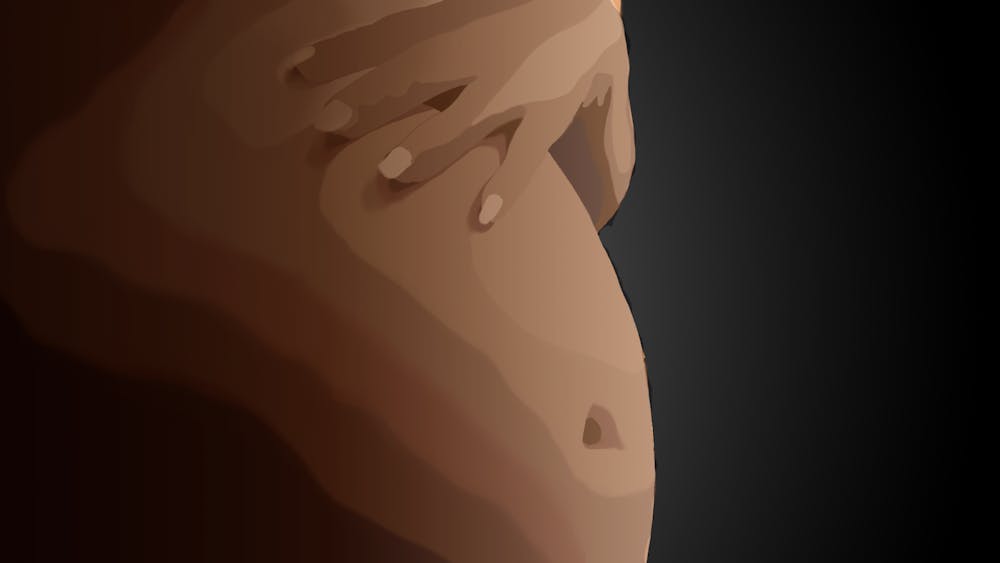Dr. Chaniece Wallace was a pediatric chief resident at Indiana University School of Medicine who devoted her life to caring for the well-being of children and adolescents. After years of caring for other young lives, she and her husband, Anthony Wallace, were anxiously anticipating the arrival of their own daughter.
The baby’s due date was set for Nov. 20, 2020.
Wallace went into premature labor Oct. 20. She delivered her baby girl by cesarean section fighting against the struggles of preeclampsia, a dangerous pregnancy complication that can be fatal to both the mother and child.
According to the American Pregnancy Association, symptoms may include high blood pressure and protein in the urine, usually occurring after week 20 of pregnancy. Though preeclampsia is said to be one of the most preventable pregnancy complications, Black women are 60% more likely to develop severe preeclampsia than non-Hispanic white women.
This disparity is often a reflection of lack of access to health care and higher rates of chronic diseases that are high risk factors for preeclampsia, according to Dr. Iris Mabry-Hernandez of the Agency for Healthcare Research and Quality in Washington, D.C.
As a result of the complications, Wallace lost her life days after giving birth. Before her death she endured surgery proceeding the delivery which caused her liver to rupture, blood pressure to rise and kidneys to malfunction.
Her daughter, Charlotte Azaela, remains in a neonatal intensive care unit. A GoFundMe page has been created to help support the Wallace family during these trying times and has raised a total of $138,585 so far, exceeding its goal of $5,000.
As a woman, to give birth is to also risk your life — Black women especially. Racial disparities and discrimination are key contributing factors in high maternal mortality rates and they must be addressed in order to save the lives of underrepresented women in medicine. It is common for Black women to feel like their medical complaints and inquiries fall on deaf ears.
There is also a long history of African Americans being hesitant to seek professional help in regard to their health due to the mistreatment and ostracization of Black people after slavery and into the Jim Crow era. An example of this would be the Tuskegee syphilis trials started in the 1930s. To ensure the safety and proper treatment of Black people in the healthcare world, stricter policies and procedures could be set to prevent biased service on the behalf of medical staff.
These issues could potentially be solved by hospitals recruiting more Black doctors and nurses to diversify their staff and care for patients. Dr. Jennifer Lincoln, a medical advisor and OB-GYN in Portland, Oregon said Black people are still less likely to get the same treatment in terms of pain medication. She also believes that Black people are more likely to wait longer in the ER because they are not taken as seriously due to the remnants of slavery in America.
Lincoln’s Tik Tok video explaining this reality went viral earlier this year.
Wallace’s death can be seen as a valuable lesson for us all. Prioritizing our health and taking precautionary measures, visiting the doctor regularly and practicing preventive care can save your life.






